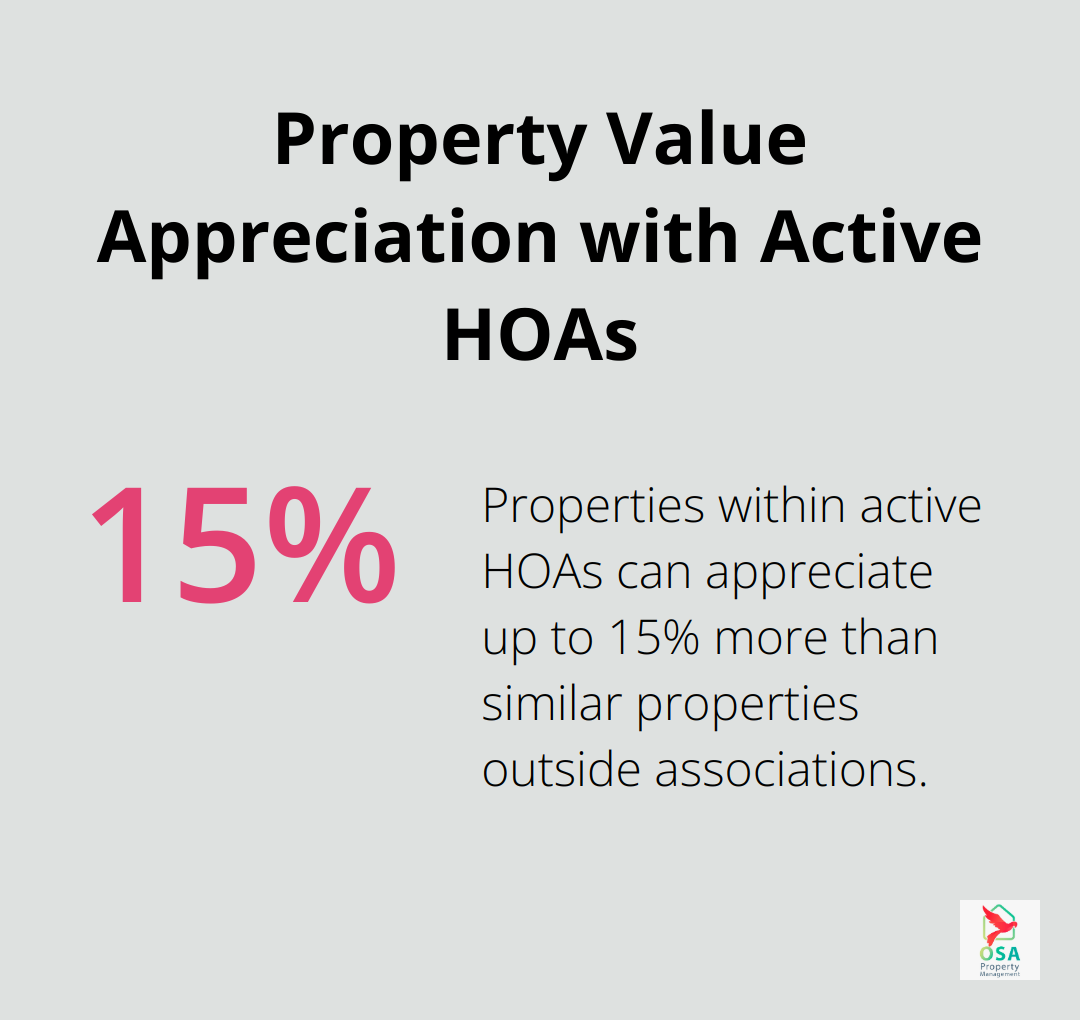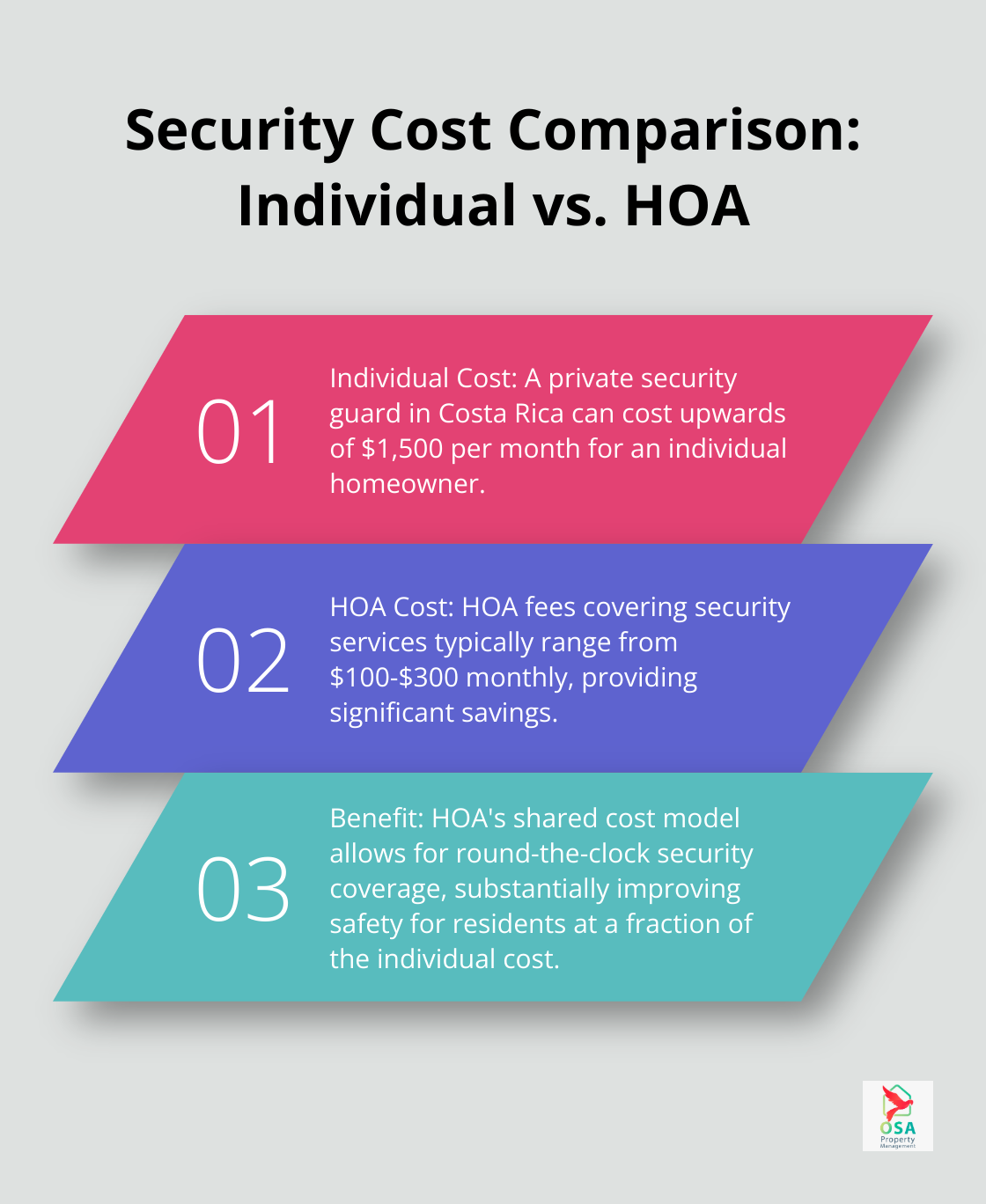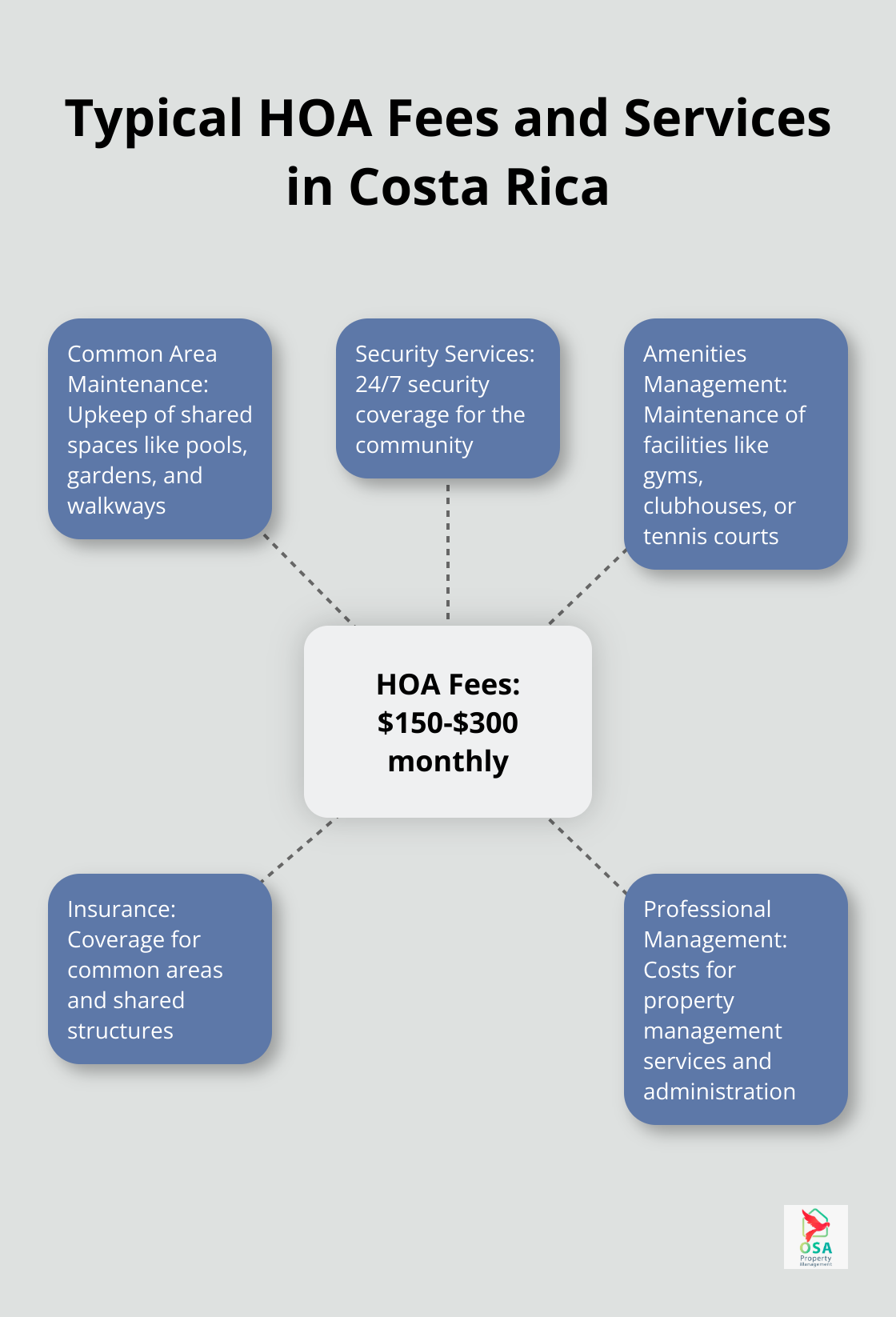At Osa Property Management, we often field questions about Costa Rica HOAs from property owners. These homeowners’ associations play a significant role in many residential communities across the country.
Understanding the pros and cons of Costa Rica HOAs is essential for anyone considering property ownership in these areas. This blog post will explore the advantages and potential drawbacks, helping you make an informed decision about your real estate investment.
What Are Costa Rica HOAs?
Purpose and Structure
Costa Rica Homeowners’ Associations (HOAs) are essential organizations that manage residential communities. These non-profit entities, regulated by the Condominium Property Law, operate under a board of directors elected by community members. HOAs maintain common areas, enforce community standards, and manage shared resources. They handle various responsibilities, from security services to pool maintenance, often resulting in substantial cost savings for homeowners. Condo owners are typically required to pay monthly or annual HOA fees to cover common area maintenance and shared services.
Legal Framework
The Condominium Property Law in Costa Rica provides the legal structure for HOAs, ensuring accountability and transparency. This law requires annual meetings and proper financial record-keeping. Potential buyers should review financial statements, bylaws, and meeting minutes before purchasing property in an HOA-managed community (a step often overlooked by eager investors).
Management and Fees
Many Costa Rican HOAs employ professional management companies to handle community issues and maintenance effectively. Monthly HOA fees vary widely, depending on community size and amenities. These fees cover shared costs like maintenance, insurance, and repairs, potentially saving individual homeowners significant amounts.
Impact on Property Values
Well-managed HOAs are essential for maintaining property values, fostering a sense of community, and ensuring smooth residential operations. This can make HOA membership a potentially valuable investment.

Quality Variations
It’s important to note that HOA quality can vary significantly. Poorly managed associations may lead to inadequate maintenance and financial mismanagement. Thorough research and due diligence are essential before committing to an HOA-managed property in Costa Rica.
As we move forward to explore the advantages of Costa Rica HOAs for property owners, it’s clear that these organizations play a significant role in shaping residential communities and influencing property values.
Why Costa Rica HOAs Benefit Property Owners
Efficient Property Maintenance
Costa Rica HOAs excel at managing common areas and amenities. This centralized approach leads to significant cost savings for property owners. HOAs typically charge monthly or annual fees to cover the costs of maintaining common areas, amenities, and services. While these fees can vary widely, they can result in substantial savings compared to individual maintenance costs.
Enhanced Security Measures
Security ranks high on the priority list for many property owners in Costa Rica. HOAs typically provide security services that would cost individual homeowners a fortune. A private security guard in Costa Rica can cost upwards of $1,500 per month, while HOA fees covering security services might range from $100-$300 monthly. This shared cost model allows for round-the-clock security coverage, substantially improving safety for residents.

Property Value Protection and Growth
Well-managed HOAs play a vital role in maintaining and increasing property values. The Costa Rican Chamber of Real Estate reports that properties within active HOAs can appreciate 5-15% more compared to similar properties outside these associations. This increase stems from consistent maintenance standards, attractive communal amenities, and the overall appeal of a well-kept neighborhood.
Community Building and Social Integration
HOAs in Costa Rica often organize community events and social activities, which foster a sense of belonging among residents. These gatherings prove particularly valuable for expatriates, offering opportunities to integrate into the local community and form lasting relationships. From beach cleanups to cultural celebrations, these events contribute to a vibrant, connected neighborhood atmosphere.
Professional Management and Conflict Resolution
Many Costa Rican HOAs employ professional management companies (such as Osa Property Management) to handle community issues and maintenance effectively. This professional approach ensures smooth operations and provides a structured method for conflict resolution. When disputes arise between neighbors or over community rules, the HOA’s management team can mediate and find solutions, maintaining harmony within the community.
While HOAs offer numerous benefits, property owners should also consider potential challenges. The next section will explore some drawbacks to evaluate when considering HOA-managed communities in Costa Rica (including restrictions on property modifications and the financial implications of monthly fees).
What Are the Challenges of Costa Rica HOAs?
Financial Burdens
HOA fees in Costa Rica typically range from $150 to $300 per month, depending on the community and amenities. These fees cover shared costs but can impact your monthly budget significantly. A beachfront community in Jaco might charge $300 monthly for extensive amenities, while a smaller development in Uvita could have fees around $150. HOAs may also levy special assessments for unexpected repairs or improvements, which can strain your finances further.

Property Use Restrictions
HOAs often impose rules that limit property modifications, rentals, and lifestyle choices. These restrictions can prevent you from personalizing your home or using it as you prefer. In a gated community near Manuel Antonio, homeowners couldn’t install individual satellite dishes (limiting their TV service options). While this maintained a uniform aesthetic, it frustrated residents who wanted more entertainment choices.
Governance Complexities
The decision-making process in Costa Rica HOAs can be slow and sometimes contentious. Issues with HOAs or COAs are not uncommon, and some properties may require recovery from years of mismanagement. Low participation in HOA meetings can result in decisions that don’t reflect the entire community’s interests. In Dominical, an HOA board (dominated by part-time residents) pushed for expensive landscaping upgrades, frustrating full-time residents who prioritized road maintenance.
Management Quality Issues
The effectiveness of HOA management varies greatly in Costa Rica. Poorly managed associations may result in inadequate maintenance, financial mismanagement, or unresolved conflicts among residents. This can negatively impact your quality of life and property value. An HOA in Tarcoles faced significant issues when their management company failed to properly maintain common areas and mishandled funds.
Due Diligence Necessities
To navigate these challenges, you must conduct thorough due diligence before committing to an HOA-managed property in Costa Rica. Review financial statements, bylaws, and meeting minutes. Speak with current residents to gain insights into the community dynamics. Consider engaging a reputable property management company to help you understand and manage your HOA obligations, ensuring a smoother ownership experience in Costa Rica’s vibrant real estate market.
Final Thoughts
Costa Rica HOAs offer property owners a mix of benefits and challenges. These associations provide efficient maintenance, enhanced security, and potential for increased property values. However, property owners must weigh these advantages against monthly fees, restrictions on modifications, and governance complexities.
Thorough research is essential before purchasing a property in an HOA-managed community in Costa Rica. We recommend reviewing financial statements, bylaws, and meeting minutes to gain valuable insights into the association’s management and financial health. Speaking with current residents will offer a realistic picture of community dynamics and satisfaction levels.
Professional assistance can make a significant difference when navigating the intricacies of Costa Rica HOAs. Osa Property Management offers expert services to help property owners manage their HOA-related matters effectively. With extensive experience in areas like Tarcoles, Jaco, Dominical, Manuel Antonio, Ojochal, and Uvita, we provide valuable guidance on HOA regulations, handle maintenance issues, and ensure compliance with local laws.

